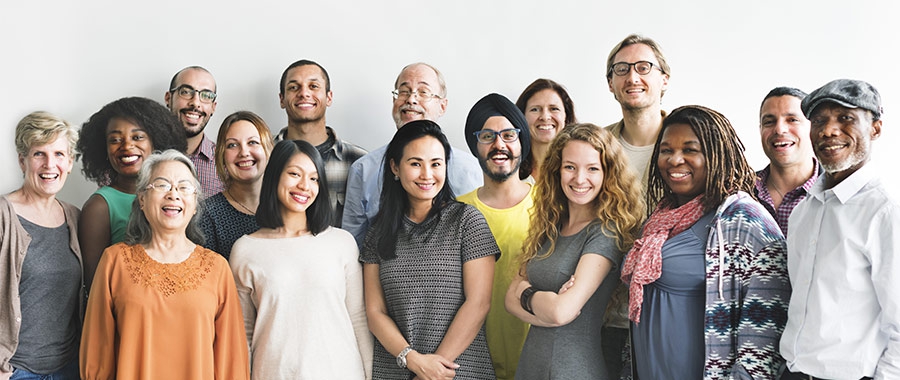The views expressed in our content reflect individual perspectives and do not represent the authoritative views of the Baha'i Faith.
The phrase “unity in diversity” will generally produce assent and agreement among most people—but many will hasten to add that another aspect of diversity work has to come first: justice.
Justice requires that we understand the problems of our community, and to do so, we need to study its history. Only then can we truly understand the struggles of people of different races, the injustices that minorities suffered in the past and still suffer in the present. Then, if we’re truly committed to a just society, we must be willing to make sacrifices to ensure that everyone has the opportunity to thrive.
To build a truly unified society, the Baha’i teachings say, everyone needs to have a voice, and everyone has a right to expect and receive justice:
The light of men is Justice. Quench it not with the contrary winds of oppression and tyranny. The purpose of justice is the appearance of unity among men. – Baha’u’llah, Tablets of Baha’u’llah, pp. 66-67.
No radiance can compare with that of justice. The organization of the world and the tranquillity of mankind depend upon it. – Baha’u’llah, quoted by Shoghi Effendi in The Advent of Divine Justice, p. 27.
It can be challenging to those in power to acknowledge diversity with justice, because to do so would also mean that we acknowledge the inequalities in our society and the way in which some have benefited over others. To get to unity requires doing the challenging work of fighting for justice by creating opportunities for the marginalized and disenfranchised.
Diversity strengthens humanity. Diversity works, and the research confirms it! In businesses, there is a growing recognition that diversity and inclusion produce better business outcomes. In order to capitalize on the diversity of the human race, businesses that include the myriad of unique perspectives in shaping their collective future, and that cultivate a culture of inclusion, tend to thrive.
When we view diversity not as a problem, but as an opportunity, when we see minority groups not as vulnerable groups, but rather as resources, then we can begin to see true power sharing and start to harness the power of a diverse, many-faceted problem-solving approach. The Baha’i teachings view diversity in exactly this way—as a net benefit to everyone:
Consider the flowers of a garden: though differing in kind, colour, form and shape, yet, inasmuch as they are refreshed by the waters of one spring, revived by the breath of one wind, invigorated by the rays of one sun, this diversity increaseth their charm, and addeth unto their beauty. Thus when that unifying force, the penetrating influence of the Word of God, taketh effect, the difference of customs, manners, habits, ideas, opinions and dispositions embellisheth the world of humanity. This diversity, this difference is like the naturally created dissimilarity and variety of the limbs and organs of the human body, for each one contributeth to the beauty, efficiency and perfection of the whole. When these different limbs and organs come under the influence of man’s sovereign soul, and the soul’s power pervadeth the limbs and members, veins and arteries of the body, then difference reinforceth harmony, diversity strengtheneth love, and multiplicity is the greatest factor for co-ordination.
How unpleasing to the eye if all the flowers and plants, the leaves and blossoms, the fruits, the branches and the trees of that garden were all of the same shape and colour! Diversity of hues, form and shape, enricheth and adorneth the garden, and heighteneth the effect thereof. In like manner, when divers shades of thought, temperament and character, are brought together under the power and influence of one central agency, the beauty and glory of human perfection will be revealed and made manifest. Naught but the celestial potency of the Word of God, which ruleth and transcendeth the realities of all things, is capable of harmonizing the divergent thoughts, sentiments, ideas, and convictions of the children of men. Verily, it is the penetrating power in all things, the mover of souls and the binder and regulator in the world of humanity. – Abdu’l-Baha, Selections from the Writings of Abdu’l-Baha, pp. 291-292.
In order to affirm and celebrate racial diversity, we can start by thoughtfully examining the ways in which systemic racism impacts us as individuals and as a community. Then can we begin to create opportunities for positive interaction in order to build trust and social cohesion. When we engage in meaningful cross-cultural interactions, we become more intentional about promoting unity in diversity.
Sometimes this will require learning to get comfortable with being uncomfortable—by accepting that achieving true diversity isn’t easy, but is an important and worthwhile process for a just society.
Most importantly, we need to regard one another as equals in one human family. Only then will another person’s suffering become our suffering. Only then will we see how disunity and racial discord hurts us all. Only then will we recognize the truth of the oneness of humanity:
Let us leave the discordant arguments concerning outward forms, and let us join together to hasten forward the Divine Cause of unity, until all humanity knows itself to be one family, joined together in love. – Abdu’l-Baha, Paris Talks, p. 123.
















Comments
Sign in or create an account
Continue with Googleor